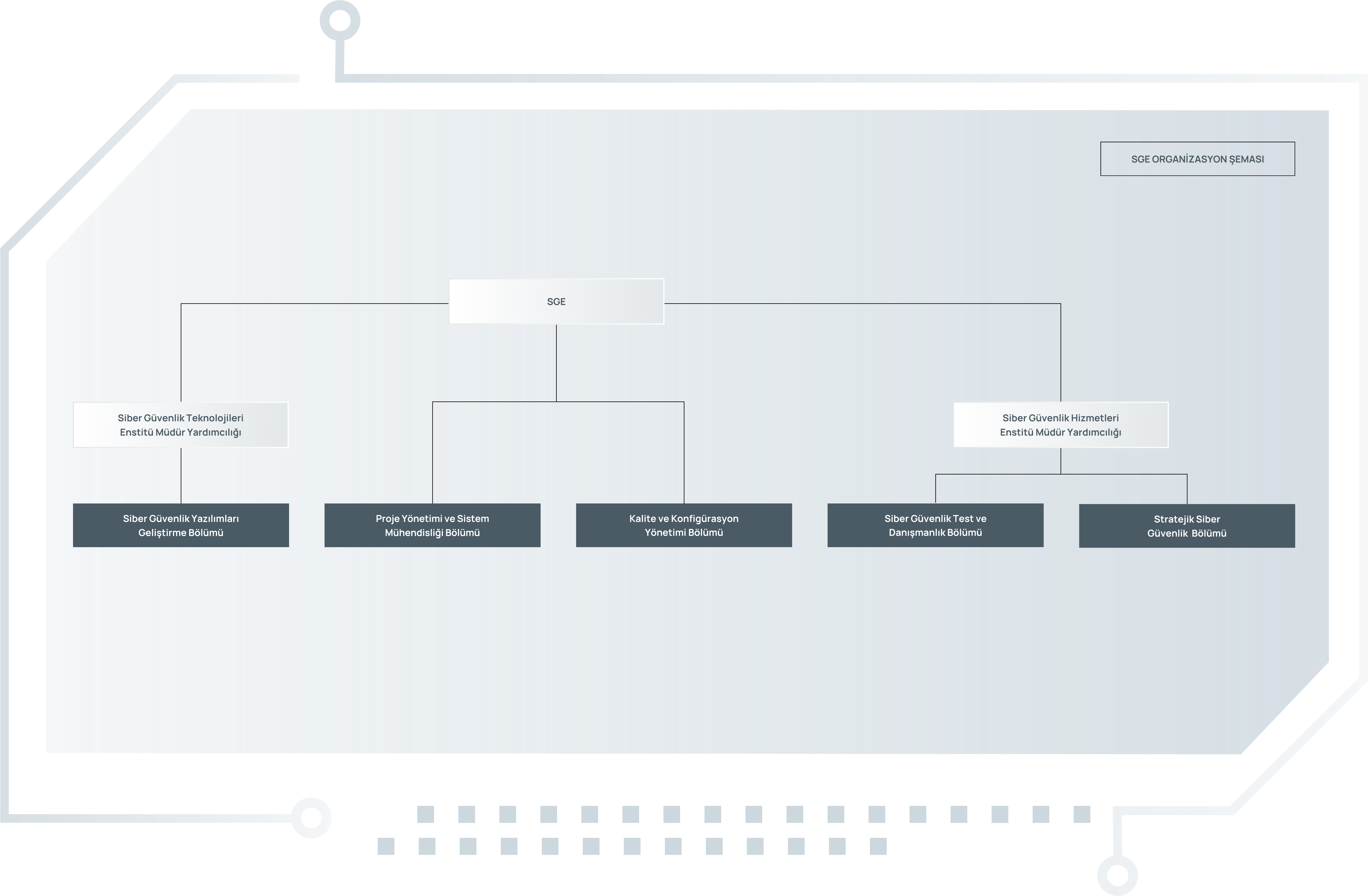SGE
Who We Are
SGE, which was established to carry out studies to increase the national cyber security capacity, started its activities in 1997 under the name of Information Systems Security (BSG) Unit under the roof of TÜBİTAK National Research Institute of Electronics and Cryptology (UEKAE). Continuing its path as a separate institute within TÜBİTAK BİLGEM as of 2012, the Cyber Security Institute serves the national security of our country with its R&D activities, which it carries out mainly to bring technology to our country in the field of cyber security. In this context, the Institute carries out solutions-oriented projects for military institutions, public institutions and organizations, and the private sector, and makes significant contributions to the creation of cyber security knowledge in our country with many successful projects.
The Institute, which has carried out many projects to meet the needs of the Turkish Armed Forces in the field of information systems security since its establishment, has become an authority in the field of information security, which should be given great importance for the future of our country. With its growing and expert staff, SGE continues to meet the information security needs of institutions in a wide spectrum and to carry out important projects both in Turkey and abroad with the Turkish Armed Forces, public institutions and companies from the private sector.
The activities of the Cyber Security Institute are grouped under three headings:
- Advanced Cyber Security Research and Development Studies
- Cyber Security Strategy Determination Studies
- Cyber Security Solution Projects
SGE
Vision and Mission
Vision
In line with the objective of TÜBİTAK Strategic Plan, "To carry out national/international, innovative and transferable strategic researches and technologies that can be put into practice with the public and private sector in areas that need priority and national criticality in line with the development goals of the country", the vision of SGE is to achieve the ideal of a Turkey with security and dominance in cyberspace, to develop advanced education infrastructures in the field of cyber security, and to represent our country in the best way in the international arena.
Mission
In line with the objective of TÜBİTAK Strategic Plan, "To conduct national/international, innovative and practical strategic research and develop technologies in areas that need priority and national criticality in line with the development goals of the country", the mission of SGE is to provide technology acquisition in the field of cyber security by conducting research and development projects, to increase the awareness/consciousness of the society on cyber security, to train qualified manpower in the field of cyber security, and to guide national strategies.
SGE
History
2022
Within the scope of the Development of Cyber Security Capabilities for Energy Critical Infrastructures (SYNERGY) Project, Energy Critical Infrastructures Cyber Attack Platform Development activities were carried out with the knowledge and experience gained from BOT-SEGEN Platform development studies.
Scenario preparation feature has been added to the Cyberlab application.
Testing and consultancy services for IoT products started to be provided to many different companies from the public and private sectors, especially critical systems affecting national security.
Within the framework of the IoT ecosystem, the IoT Security Laboratory was established to provide services in various security testing expertise areas.
In cooperation with TSE, Information and Communication Security Guide Auditor Training was given.
2021
Within the scope of NATO SPS, Advanced Cyber Security Training was given to Azerbaijan Armed Forces Military Academy.
2020
SSB Academy – Cyber Security Establishment was carried out by SGE under the coordination of SSB within the scope of TAF personnel competency enhancement. In this context, a 4-month term program was carried out.
2019
Within the scope of NATO SPS, Advanced Cyber Security Training was given to Azerbaijan Armed Forces Military Academy, Tunisian Armed Forces and Jordan Armed Forces.
2018
The Virtual Cyber Security Laboratory (Cyberlab) was commissioned in order to carry out cyber security trainings, tests and drills in a fast, easy and cost-effective manner on virtual environments created on the cloud.
Within the scope of NATO SPS, Advanced Cyber Security training was given to Azerbaijan Armed Forces Military Academy.
2015
NATO Cooperative Cyber Defence Centre of Excellence (CCDCOE) protocol was signed, and within the scope of the protocol, CCDCOE research and exercises were contributed.
2014
A Corporate and Sectoral SOME Installation Guide was prepared for the benefit of organizations obliged to establish a Corporate Cyber Incident Response Team (SOME).
2013
National Cyber Security Exercise was carried out in cooperation with BTK.
2012
The Network Security Group, which has become one of Turkey's leading information systems security centers, was first named the Information Systems Security Department and then the Cyber Security Institute (SGE). As of this date, SGE continues its activities as an institute under the umbrella of BİLGEM.
Critical Infrastructure Sectoral Risk Analysis Methodology was created with the support of the Ministry of Development.
2011
National Cyber Security Exercise was carried out in cooperation with BTK.
2010
In cooperation with TÜBİTAK BİLGEM and TSE, which are stakeholders in Common Criteria certification, the journey to ensure that the certificates produced have international recognition was completed. Thus, Turkey was declared as the 14th "certificate producing country."
2009
A study was initiated by the Cyber Security Institute with the support of the Ministry of Development and reports were prepared by analyzing the informatics systems of critical infrastructures such as communication, energy, finance and water throughout the country.
Safety tests were performed to industrial control systems (SCADA) of some critical infrastructures.
National Cyber Security Exercise was carried out in cooperation with BTK.
2008
Successful projects were carried out in areas such as Information Security Management System and Business Continuity.
In a number of NATO projects, partnerships were made with the implementing companies to fulfill the information security requirements of the projects.
Information security trainings were provided to countries with which Turkey has close relations.
2006
Since 2006, the Common Criteria Laboratory has intensified its work on smart card security and gained expertise especially in Side Channel Analysis and Reverse Engineering. With its infrastructure in this field, it has become one of the most important test centers in the world.
2005
Within the scope of the National Information Systems Security Program, the Turkish Computer Incident Response Team (TR-BOME) was established within TÜBİTAK BİLGEM to ensure the cyber security of our country.
2001
Common Criteria Test Center (OKTEM) was established with the support of the Turkish General Staff.
Common Criteria (CC) assessments, which are based on the basic principle of evaluating information system products according to certain security criteria and determining the security levels they provide, have become possible in our country's laboratories.
In the following years, the lab added COMSEC (Communication Security) tests, which can be realized for crypto devices, to its capabilities.
1999
The foundations of Cyber Security Institute (SGE) were laid with the establishment of a comprehensive test laboratory called the Network Security Group.














